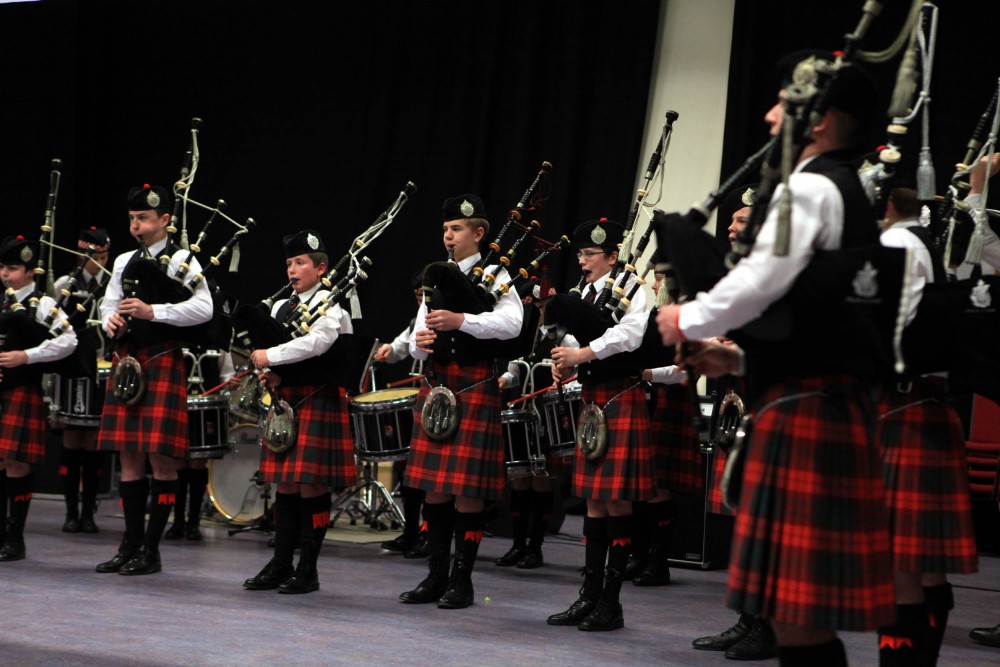BAGPIPES were introduced to Scotland by the English – according to a Scottish-based academic.
The iconic instrument has long been a symbol of Scottish identity – recognisable for its distinctive look and sound.
But at the International Bagpipe Conference starting today a Glasgow academic will make the brave claim that the instrument was imported by rivals from south of the border.
Dr Vivien Williams – organiser of the conference – expects her argument to raise eyebrows at the event, which continues over the weekend.
She said: “Bagpipes originated around 3,000 years ago, probably in India or the Middle East. They finally arrived in the British Isles with the Roman invasion around AD 43.

“They invaded from the south, so unquestionably this meant the bagpipes were heard in England before they arrived in Scotland.”
Dr Williams – a musicologist at the University of Glasgow – has also insisted there is much evidence that the pipes were a firmly established part of English culture before making their way north.
Her research shows that the 10th Century Exeter Book – an anthology of Anglo-Saxon poetry – features a riddle hinting at the instrument in England, some 500 years before the first record of pipes in Scotland.
She said: “It talks about a majestic bird that sits with its feet in the air and its beak down below.It cannot fly or walk, but has a glorious gift of song.
“The solution to the riddle is the bagpipe.”
And royal records point to Edward II making two payments to a “Janino Chevretter” in 1307 – the word chevrette meaning a bagpipe with a goatskin bag.
Such records suggest Edward may have rode into the Battle of Bannockburn in 1314 with a personal piper – although it was clearly not enough to save him from a disastrous defeat at the hands of Robert the Bruce.
She also points to the most famous example, from Chaucer’s 14th century Canterbury Tales – where it is said of one of the characters: “A bagpipe well could he blow and sound.”
But in Scotland the bagpipes arrived “relatively late” in comparison to England – and even the rest of the world.
She explained: “The first undisputed reference to the bagpipes in Scotland come from the 15th century in the shape of carvings at Melrose Abbey and Rosslyn Chapel in Midlothian.
“That suggests that the bagpipe established itself relatively late compared to other counties and parts of the world.”
The first written reference to the bagpipes in Scotland comes even later – in 1623 – when a Perth piper was fined for playing on the Sabbath.
The bagpipes may not have a strictly Scottish heritage, but Dr Williams has claimed that Scots were quick to tailor them to an instrument suited for inspiring troops in battle.
She said: “Previously Scotland’s national instrument had been the clarsach, or Celtic harp. However, it did not cut it as a military instrument.
“The bagpipe, by contrast, was noisy and inspiring to your neighbours and intimidating to your opponents.
“Although the bagpipes arrived in England first, Scotland has made so much more of them as a national instrument.”
Watt Nicoll, a folk musician and broadcaster, was outraged by Dr William’s claims.
He said: “It’s a brave person that stands up in Glasgow and makes a claim like that. I think most Scots will see it as some kind of outrageous joke.”
Tom Johnstone – a Renfrewshire pipe major – was also unconvinced.
He said: “I have played the bagpipes around the world and in each and every one they have associated the bagpipes with Scotland.”
David Robertson – who played at the Queen Mother’s funeral – added: “It’s all very well to claim that, but where are the English bagpipes now?”

